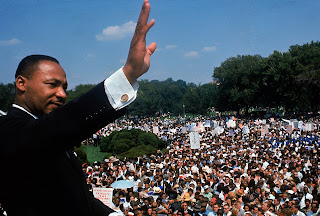Shevat 25, 5782 / January 25-26,2021
Parashat Mishpatim
Torah: Exodus 21:1 - 24:18
Haftarah: Jeremiah 34:8-22; 33:25-26
This d'var torah is offered in memory of Allan Cohen, who passed way on Wednesday, January 19. The funeral is in-person only, no livestream, and is subject to COVID-19 restrictions, at Groman-Eden Memorial Park in Mission Hills on Wednesday, January 26 at 1:00 PM. The community extends condolences to his wife Joanne Cohen, daughter Frances Cohen, and sister Melinda Bold. Y'hi zikhro liv'rakhah - May his memory be a blessing.
This d'var torah is offered for a refuah shleimah for Feigel bat Kreina and D'vorah bat Feigel.
This d'var torah is offered in memory of Leonard Foint, whose yahrzeit falls on Friday, February 4/Adar 3. Y'hi zikhro liv'rakhah - May his memory be a blessing.
Lunch and Learn meets Tuesdays at 12:30 PM on Zoom and Facebook Live. We’re continuing to read and discuss the Midrashic collection Ein Ya’akov. On February 1, we'll be at page 4 (my pagination) of Chapter 3 of Berakhot - "Amar Rav Yehudah manin l'virkat hamazon l'achareiha min hatorah ..." - "Rav Yehudah from where do we learn that blessing after the meal is in the Torah...” The reading may be found at:
https://drive.google.com/file/d/1TpQwHh2XyWT9XYQ5OAjwxDbuVpXbzIDY/view?usp=sharing
Check out our wonderful community, and get lots of info about becoming a Chaver and our various programs, at: https://bnaihayim.org/
Dr. Steve Pearlman writes up the "Midrashim of the Week", available this week at:
https://drive.google.com/file/d/1i5ee4tO4FAiLEaKOsSECQjMOPk3X3ljF/view
-----------------------------------------------------------------------------
משנכנס אדר, מרבין בשמחה Mishenichnas Adar, marbin b’simchah! – With the beginning of Adar, we increase joy! (BT Ta'anit 29a)
This coming Tuesday and Wednesday are Rosh Chodesh Adar 1. SO HERE'S A LITTLE CONTEST
As this is a Jewish Leap Year, it raises a question, and the person who gives me whatever I believe to be the best answer will be awarded one slightly used bottle of slivovitz (the decision of the judge and the amount of slivovitz he drinks from the bottle are in his sole discretion and are final): Since we are instructed by our rabbis to be joyful in Adar, and Adar is twice as long this year, does that mean that we have twice as much joy this year than in non-leap years, or, does it mean that on any given day in the months of Adar, we are only half as joyful as we would have been in a non-leap year because our joy must be spread over twice as many days? There is no right or wrong answer! Be creative with proof texts!
-------------------------------------------------------------------
--------------------------------------------------------
YOUR FEELINGS ARE NOT NECESSARILY YOUR OWN!
“You shall not oppress a stranger (ger, which can also mean a foreigner or a convert), for you know the heart of a stranger, for you were strangers in the land of Egypt.” Exodus 23:9 (See also a similar statement at Exodus 22:20)
The Alter of Slabodka (Rabbi Nosson Tzvi Finkel, founder of the Slabodka Yeshiva, b. Lithuania 1849 – d. Jerusalem1927) teaches the following:
"Please do not explain this according to the simple meaning, that we are not permitted to oppress a stranger because we, too, had been strangers and had been oppressed, and thus know the taste of oppression. Rather, the reason is that a person is required to feel and participate in the joy and distress of his fellow, as if these had affected him personally. "You shall love your neighbor as yourself" (Leviticus 19:18) - exactly as yourself. A person's relationship to others is not complete unless he feels their joys and sorrows with them, without any differentiation." (from Itturei Torah)
It seems like nothing is ever simple with rabbis! For the Alter of Slabodka, merely not oppressing the Other is not enough! Yes we Jews know oppression - but we need to have the greatest empathy for the Other, for the oppressed, in their joy, in their sorrow, and, I would suggest, in their day to day lives. This, he believes, is the only way to have a completely loving relationship with another.
This is a tough, some might say impossible order to follow. But consider how this deep, deep sharing/experiencing of emotions with the Other will create within us and within them the Truth - that they are indeed "exactly as yourself".
Shabbat Shalom! Chodesh Adar Sameach!
Richard A. Flom, Rabbi Emeritus
TBH/CBM
Sherman Oaks, CA
TBH/CBM
Sherman Oaks, CA
משנכנס אדר, מרבין בשמחה
With the beginning of Adar, we increase joy! (BT Ta'anit 29a)
To subscribe to Cyber Torah, send an e-mail with the subject heading “Subscribe Cyber Torah” to: ravflom@sbcglobal.net
Send requests for dedications of Cyber Torah in honor of a simchah, in memory of a loved one or for a refuah shleimah to: ravflom@sbcglobal.net
To unsubscribe from Cyber Torah, send an e-mail with the subject heading “Unsubscribe Cyber Torah” to: ravflom@sbcglobal.net






